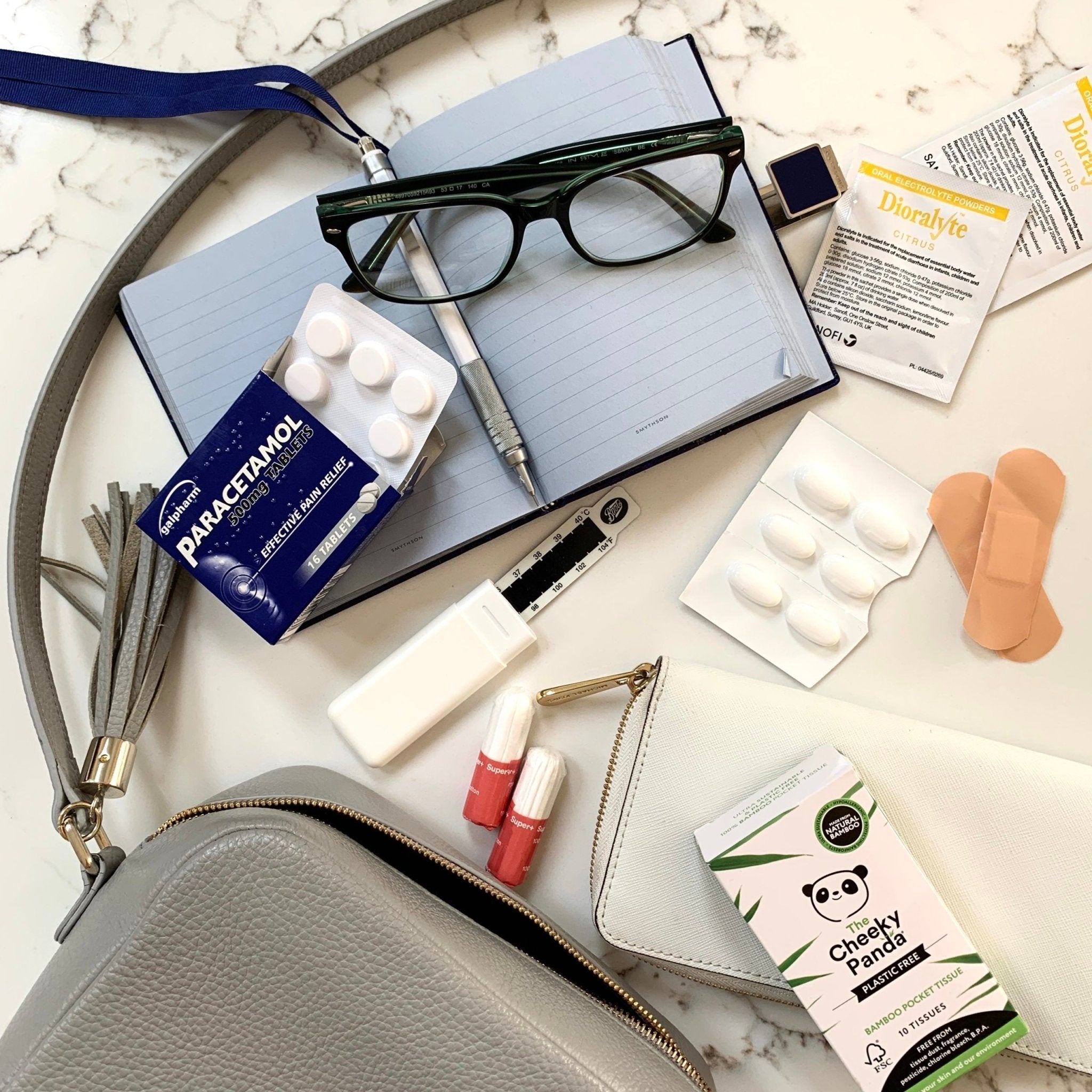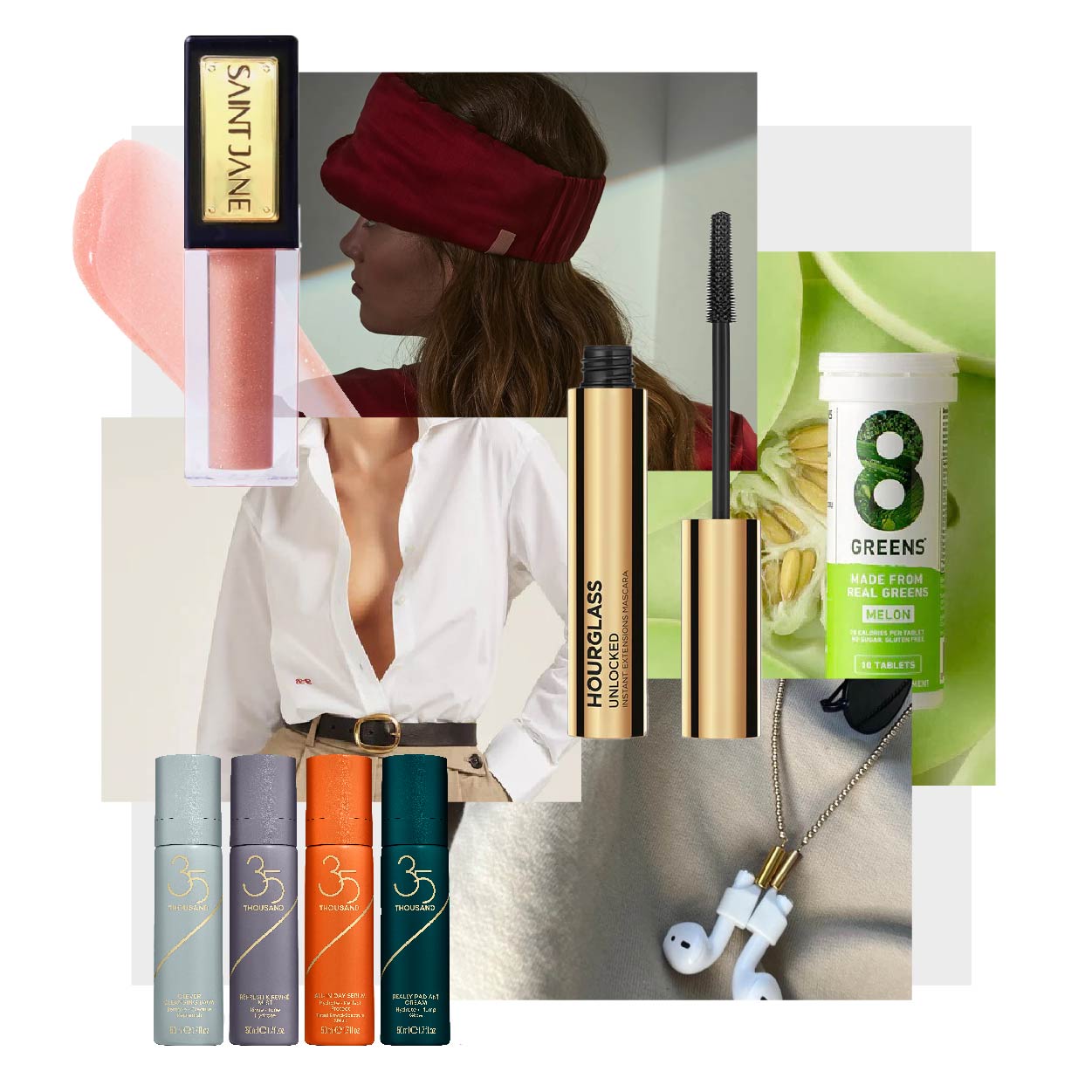We’re increasingly looking beyond the beauty stash to prioritise having wellbeing handbag essentials to hand – here’s what you really need and why, by Anna Lao Kaim.
A capsule make-up collection, phone and house keys – the holy trinity of handbag must-haves for most of us, but the pandemic led many to reassess the ‘critical’ kit that we cart around. From hand sanitiser to vital packets of tissues to catch sniffles, our handbag staples have evolved from simply a standby nude lipstick plus keep-cup combo. Health fundamentals have often been overlooked in favour of more glamorous accessories, but now that staying well is particularly at the forefront of our minds, what should we carry on the daily? Here’s your wellbeing starter for ten…
The hygiene heroes
Pharmacist Thorrun Govind emphasises that “Hand sanitiser is no substitute for properly washing your hands with regular soap and water” (you know the “happy birthday” drill), but that essentially, it’s an added extra and many people that are using it aren’t getting the full benefits:
“Hand sanitiser can help to limit the spread of germs and viruses to some degree but just dabbing it onto your hands will make no difference – you need to really rub it in (between fingers and around the nail bed) for it to be in any way effective.”
Additionally, hand sanitiser needs to have an alcohol content of at least 60% to guard against the spread of bacteria and viruses, so a homemade vodka cocktail for your hands simply isn’t feasible. Look for the highest alcohol content available and tuck an emollient-rich hand cream in your bag too to combat chapping – alcohol has a dehydrating effect on skin from the outside as well as the inside.
One important ‘healthy handbag’ factor to consider is how often you actually clean it. Govind recommends giving your bag a thorough sluice with antibacterial spray or wipes and lifting out any artificial compartments in bags to give them a good wash. Clearly if your bag is a Birkin you may not wish to give it a Dettol bath – specialist handbag cleaning services such as The Handbag Spa and The Restory can do the dirty work for you.
The doctor’s bag
Whilst a moveable pharmacy isn’t necessary, Govind recommends keep a stash of pain relief big hitters like paracetamol, aspirin and ibuprofen, and highlights that there are a few other key items we should ideally have in stock.
On-the-spot solutions
Keeping an antihistamine in your bag isn’t just handy for hayfever season – a tablet can help to reduce the effects of everything from pet allergies to reactions caused by allergens in alcoholic drinks (wine flu really is a thing). Antihistamine creams on the other hand can bring down external reactions, although Govind notes that oral antihistamines are usually the most effective option.
Also on the ‘good to have’ list are oral rehydration salts to speed recovery if you’ve had episodes of diarrhoea and vomiting (in which case keep yourself and your handbag at home until you’ve fully recovered), an eyewash solution to rinse away grit, pollen and dust and an antiseptic cream to soothe, heal and disinfect everything from grazes to wounds to unwelcome spots.
Tools of the trade
On Govind’s handbag hit list are a small thermometer, clean tweezers and plasters (depending on your ‘new shoe’ status, blister plasters may prove useful too).
The period products
With the tampon tax finally being scrapped in the UK in 2021 (we’re still waiting on many states to do the same in the US) the world is slowly coming around to the fact that period products are in fact not luxury items – they’re handbag essentials for a large number of us. With that in mind, for those that can afford to, it makes sense to opt for the most eco-friendly period products on the market.
Regular tampons and pads typically have a 90% plastic content but the sustainable period product market has seen a boom in compostable, reusable and organic innovations that not only meet your monthly needs but are also made for women, by women. Groundbreakers include Hey Girls, a UK company producing 100% organic tampons with biodegradable applicators made from sugar cane. For every period product purchased, the founders give a box to a girl or woman from a low-income family. Seventh Generation runs a similar initiative in the US by quite literally absorbing tampon tax for every packet sold and donating it to period care non-profits. Other bright, bold, non-body shaming and environmentally friendly brands to bookmark include Flo (available in the US and the UK) Ohne in the UK and L. in the US, all of which include a social enterprise benefit whenever you buy. In short, from hereon you’ll be brandishing a tampon from your purse with pride – this stuff has stayed hidden in there for far too long.
Main image credits: Smythson Portobello Notebook, and the Gigi Cross-Body Bag from aurora-london.com



